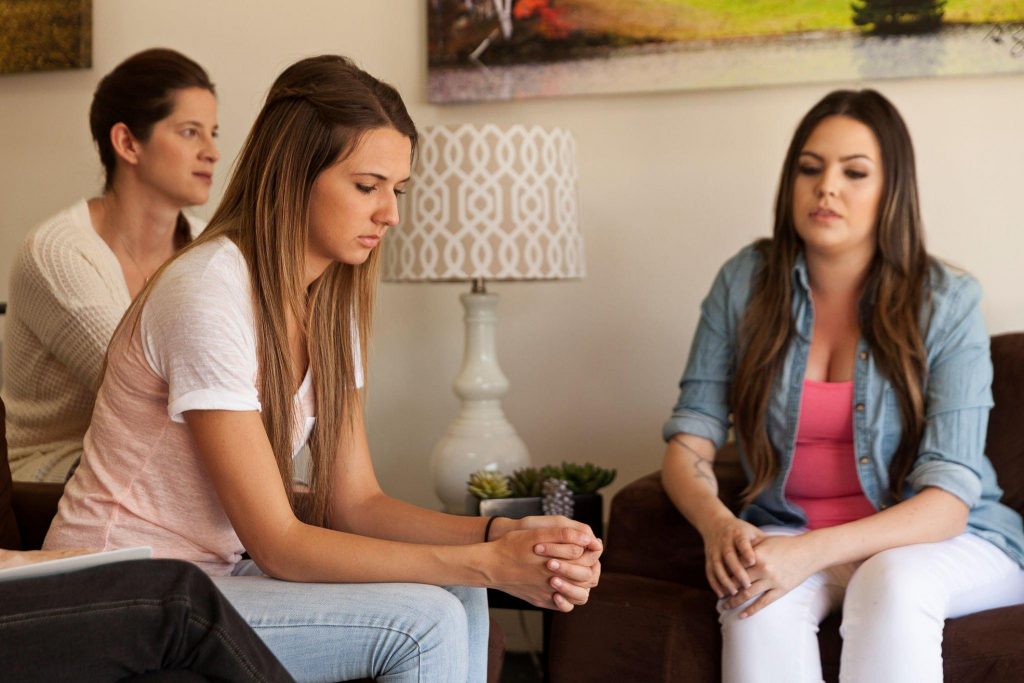Imagine this: a family gathering bright with smiles and laughter, yet an undeniable tension simmers just beneath the surface. Yep, that’s the unspoken shadow of addiction, a party crasher no one wants to acknowledge. Let’s dive into the rollercoaster that is navigating addiction within the family—strap in, folks!
Understanding Addiction in Family Members
What is Addiction?
Picture addiction as that relentless ex who just won’t take the hint. It’s a chronic condition that nudges people to engage in behaviors (or substances) that are, well, not great for them—despite all the fallout. It’s more complex than you might think, involving a tangled web of biological, psychological, and social factors. So, before we dive into judgment, let’s wrap our heads around this: addiction is a beast that can affect anyone.
Signs and Symptoms of Addiction in Family Members
Spotting addiction is like looking for Waldo, but the stakes are a wee bit higher! Look out for these red flags:
- Changes in Behavior: Mood swings and secrecy can become the family norm—RIP trust!
- Physical Symptoms: Weight changes or neglected hygiene can kick down the door of denial.
- Withdrawal from Family Activities: If they’re skipping family game night, it’s time to investigate.
- Neglecting Responsibilities: Once-dependable family members suddenly morph into the forgetful forgetters.
- Emotional Instability: Brace yourselves for increased anxiety, irritability, and a rollercoaster of emotions.
- Legal Issues: Trouble with the law can be a glaring wake-up call.
- Relationship Troubles: Friends getting ghosted? That’s not normal behavior for a social butterfly!
- Increased Isolation: They might be disappearing into their room like it’s the latest Netflix craze.
- Loss of Interest in Hobbies: If they used to love painting but now only paint their nails (with despair), you might have a problem.
- Engaging in Risky Behaviors: Recklessness is never a good sign—unless they’re at a carnival.
The Impact of Addiction on Family Members
Emotional Effects of Addiction
Addiction doesn’t just knock on the door; it barges in and throws a party—complete with stress, anxiety, and guilt. Families can start feeling like strangers in their own home, where communication turns into a game of “who can avoid the topic longest.” Spoiler: nobody wins!
Financial Strain from Addiction
With addiction comes financial chaos, like a tornado ripping through your budget. Between treatment costs and legal fees, your wallet might feel lighter than a college student’s excuse for missing class. Remember, money problems can add fuel to the fire of familial conflict, so let’s talk about it!
Social Repercussions of Addiction
Feeling isolated? Well, welcome to the club—except this one comes with awkward conversations and judgmental glances! Addiction can create a bubble that keeps the family inside while the world watches from a distance. Not cool, addiction. Not cool at all.
Creating a Supportive Environment in Families Facing Addiction
Open Communication About Addiction
Let’s be real: talking about addiction is about as easy as herding cats. But it’s necessary! Find a calm moment to drop some “”I”” statements that won’t send everyone running—like “I feel worried” instead of “You’re a hot mess.” Trust me, it’ll be a game changer!
Setting Boundaries to Protect Family Members
Boundaries can feel tough to set, but they’re your emotional life jacket in the choppy waters of addiction. Just because you love someone doesn’t mean you have to let their addiction destroy your happiness. Clear boundaries help carve a healthy space in the family chaos.
Seeking Professional Help for Family Members
Sometimes we need to call in the big guns. Professional help doesn’t mean your family is broken; it means you’re wise! Counselors can provide insights and strategies tailored just for your unique adventure.
Resources for Families Struggling with Addiction
Support Groups for Families
Join a support group and suddenly, you’re part of a club with fellow adventurers! Share experiences, laugh at the wild ride, and remember you’re not alone—it’s the ultimate family therapy session minus the couch!
Counseling and Therapy Options
Consider different therapy options to support your family:
- Family Therapy: A group hug for the whole family.
- Individual Counseling: For personal care, because you’re worth it!
- Group Therapy: Bonding over shared experiences is like a team-building exercise for your emotional health.
Sober Living Homes for Recovery
Looking into sober living homes? It’s like finding your way back to reality after a long vacation in la-la land. These homes can be a safe haven for healing, where everyone can find their footing again.
Encouraging Recovery within the Family
How to Support Recovery in Loved Ones
Celebrate small wins like they’re major holidays! Did they go a day without cravings? High-five, confetti, the whole shebang! Remind them of their goals and dreams—it’s like giving them rocket fuel for their recovery journey.
Activities to Strengthen Family Bonds After Addiction
Strengthen those family ties by planning fun family nights, hiking expeditions, or creating a cooking challenge! Laughing and bonding over creations that don’t include regret is the way to go!
Prioritizing Self-Care while Supporting Family Members
Self-care isn’t selfish; it’s survival! Dive into hobbies, practice yoga (or attempt to; it’s okay if you fall), and lean on your support network. You’ll need your energy to help your loved ones!
Conclusion
Navigating addiction as a family is no easy task, but it’s important to remember that there’s always hope and healing. By taking action together, families can forge their way to better relationships and brighter days ahead.
Call to Action
Have you encountered the rollercoaster of addiction in your family? Jump into the comments and share your experiences! Together, let’s lighten the load, spread some humor, and keep this journey inspiring!”

